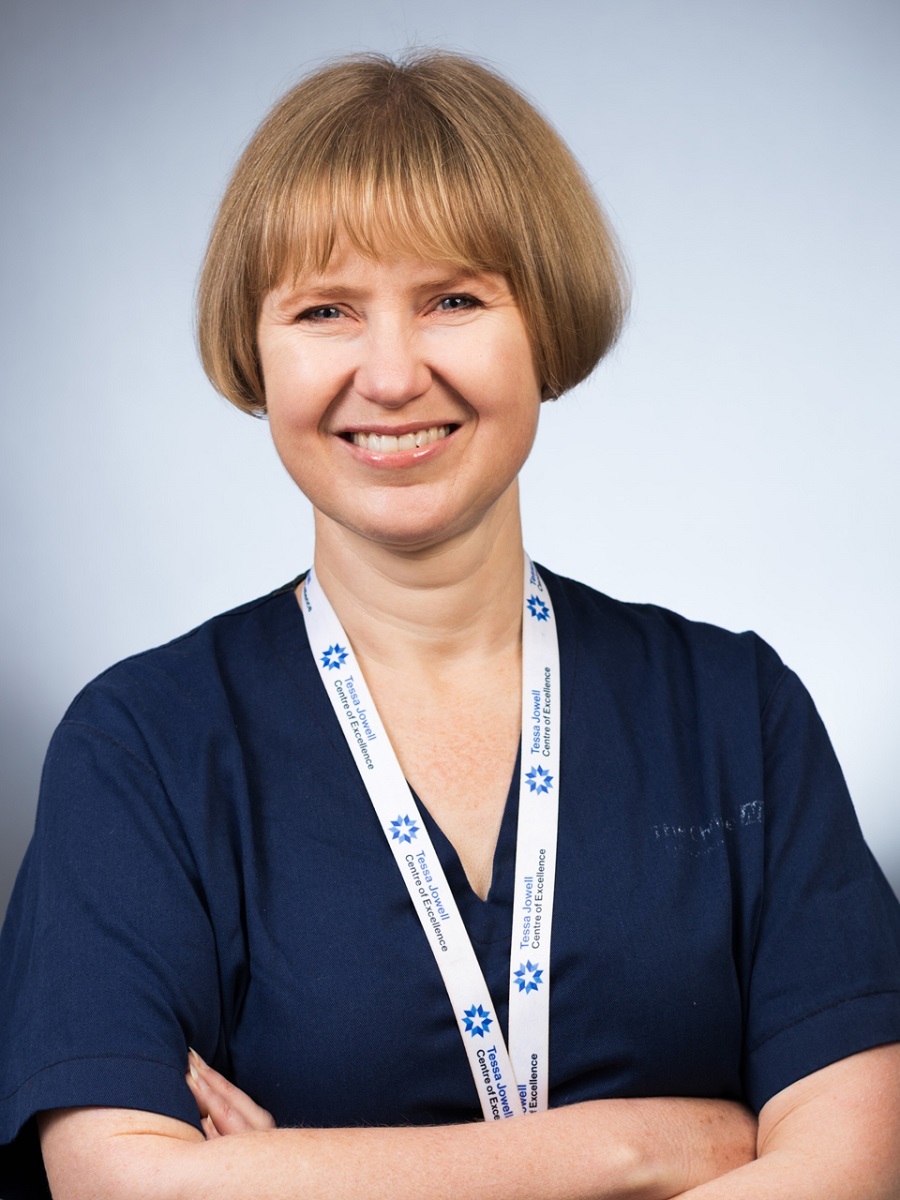Coping with changes after brain tumour treatment
As you recover from treatment, you may have to adjust to some changes. These may be caused by the treatment you have had or the tumour.
After treatment for a brain tumour
As you recover from treatment for a brain tumour, you may have to adjust to some changes. These may be caused by the treatment you have had or the tumour. These changes will depend on:
- the type of tumour
- where the tumour is in the brain
- and what treatments you had.
Most side effects are short-term and will improve gradually when the treatment is over. Some treatments can cause side effects that do not get better. These are called long-term effects. You may also get side effects that start months or years later. These are called late effects. Your doctor or specialist nurse can tell you what you could expect.
In the video below, Jordan who has had a brain tumour, talks about life after cancer treatment. Anna, a Neuro-oncology nurse practitioner explains the side effects of cancer treatment.
Tiredness (fatigue)
You are likely to feel tired for some time after treatment. This usually slowly gets better.
Sometimes people have ongoing problems with tiredness. This can make it difficult to do even simple everyday tasks. It may also affect how you feel physically and emotionally.
Always tell your healthcare team if tiredness is making things difficult. There are ways you can manage it. They may also do some tests to check if there are any other causes of your tiredness that can be managed.
Try to pace yourself and plan your days so you have time for regular rests. Having a healthy diet and doing some gentle exercise, like short walks, can give you more energy. We have more information about coping with tiredness.
Changes to thinking, mood, motivation or personality
Changes to thinking or behaviour do not affect everyone. If you do have this type of change, it may get better over time. Sometimes changes are permanent. Your doctor will explain more about your situation.
Some people find it hard to think clearly, concentrate or remember things. Others may react or behave in a way that can seem out of character.
Some people find they have difficulty getting started on any activity (feeling motivated). Although this type of change is not always so obvious, it can have a big effect. You may find it hard to organise your day, get things done or arrange activities like meeting friends or exercising. It can help to follow a daily routine and try to get enough sleep.
If you have memory problems, you could try to use:
- a diary, mobile phone or calendar to record and check your plans
- pill boxes to organise your medication
- checklists and alarms to organise your tasks.
If you have difficulty thinking clearly or making decisions, you may be able to have therapy to help. This is called cognitive re-training.
Always tell your healthcare team if you notice changes to your thinking, mood or personality. They can talk to you about things that may help. They may arrange for you to see an occupational therapist, neuropsychologist or psychiatrist. They can help you find ways of improving or coping with changes.
Sometimes changes are caused or made worse by the drugs you are taking. For example, steroids can affect your mood. If you think a drug is making things worse, tell your doctor or specialist nurse.
Depression or anxiety can also make it harder to cope. We have more information about coping with difficult emotions.
Booklets and resources
Body image
Sometimes treatment or the brain tumour can affect your appearance or how you feel about yourself. Some changes are temporary, and some are permanent. Changes may include:
- scars from surgery
- hair loss
- weight gain
- loss of fitness
- changes in movement, balance or co-ordination
- changes in speech.
Your doctor or specialist nurse will talk to you about possible changes before treatment starts.
There is no right or wrong way to feel about a change to your body. Some people find that physical changes do not upset them.
For others, even a small change in appearance can make them feel less confident. If you are worried about a body change, talk to your doctor or nurse. They can give you advice and support. They may suggest ways to help you adjust. We have more information about coping with body changes.
Help with your recovery
Your healthcare team includes professionals who can help you during and after your treatment. They may be involved in the early stages of your recovery or for a while after your treatment has finished. You may meet them when you are in hospital, in a clinic, or in your own home.
Your doctor or nurse may refer you to a neurological rehabilitation (neuro-rehab) service. This service may be able to refer you to a physiotherapist, speech and language therapist, or occupational therapist, and offer emotional support.
Who you may meet will depend on the help that you need. You may have help from 1 of the following healthcare professionals.
Physiotherapists
A physiotherapist can help you maintain or improve your strength, balance and co-ordination. They can help you adjust to living with any permanent changes and show you how to use the abilities you have as well as possible. They can give you exercises, advice and equipment to help.
Speech and language therapists
A speech and language therapist (SLT) can help if you have problems speaking or communicating clearly. They can also help if you have difficulty eating, drinking, or swallowing. They will give you advice and show you exercises to do.
Occupational therapists
An occupational therapist will help you get back to doing everyday tasks. This could include washing, dressing, eating, shopping or managing your money. They can also provide equipment to help to make things easier.
Specialist nurse
A specialist nurse is often involved during and after your treatment in hospital. They are usually the main person you contact if you have problems after treatment.
If needed, a district or community nurse may visit you at home. Your GP or someone at the hospital can arrange this before you go home. The nurse can help you with things like looking after your wound or managing your medicines.
Some people have support from a specialist nurse to manage any symptoms caused by the tumour. This nurse may be called a palliative care nurse or Macmillan nurse. They are experts in symptom control and support people who are living with a brain tumour. They can give you and your family emotional support and information about other services that may help. They can also support people who are nearing the end of life.
Counsellor or psychologist
People often have to cope with some difficult feelings after treatment. Talking to family or friends can help. Sometimes people need more support to cope with how they are feeling. If needed, your doctor, nurse or GP may be able to arrange expert help from a counsellor or psychologist.
We have more information about coping with difficult emotions.
Taking care of yourself
After treatment, you are likely to feel tired and you may still have some side effects or symptoms. You may be adjusting to changes and learning new ways of coping.
It is important to take care of yourself. Give yourself time and things will gradually improve. Try to follow advice from your healthcare team. We have more information to help improve your well-being.
Getting support
Many people find they get anxious for a while once treatment ends. This is natural. It can help to get support from family, friends or a helpful organisation. Macmillan is also here to support you. You can:
- Call the Macmillan Support Line for free on 0808 808 00 00.
- Chat to our specialists online.
- Visit our brain cancer forum to talk with people who have been affected by brain tumours, share your experience, and ask an expert your questions.
You may also want to get support from a brain tumour charity, such as:
About our information
This information has been written, revised and edited by Macmillan Cancer Support’s Cancer Information Development team. It has been reviewed by expert medical and health professionals and people living with cancer.
-
References
Below is a sample of the sources used in our primary brain tumour information. If you would like more information about the sources we use, please contact us at informationproductionteam@macmillan.org.uk
EANO-ESMO Clinical Practice Guidelines for prophylaxis, diagnosis, treatment and follow-up: Neurological and vascular complications of primary and secondary brain tumours. 2021. Available from www.eano.eu/publications/eano-guidelines/eano-esmo-clinical-practice-guidelines-for-prophylaxis-diagnosis-treatment-and-follow-up-neurological-and-vascular-complications-of-primary-and-secondary-brain-tumours [accessed August 2024].
NICE Guideline NG99. Brain tumours (primary) and brain metastases in over 16s. 2018 (updated 2021). Available from: www.nice.org.uk/guidance/ng99 [accessed August 2024].
Date reviewed

Our cancer information meets the PIF TICK quality mark.
This means it is easy to use, up-to-date and based on the latest evidence. Learn more about how we produce our information.
The language we use
We want everyone affected by cancer to feel our information is written for them.
We want our information to be as clear as possible. To do this, we try to:
- use plain English
- explain medical words
- use short sentences
- use illustrations to explain text
- structure the information clearly
- make sure important points are clear.
We use gender-inclusive language and talk to our readers as ‘you’ so that everyone feels included. Where clinically necessary we use the terms ‘men’ and ‘women’ or ‘male’ and ‘female’. For example, we do so when talking about parts of the body or mentioning statistics or research about who is affected.
You can read more about how we produce our information here.






